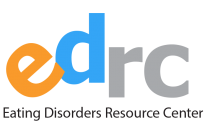Is an obsession with “clean eating” a bona fide mental disorder deserving of its own diagnosis in psychiatry’s official manual of mental illness?
A flurry of new studies and reviews is breathing new life into so-called orthorexia nervosa, loosely defined as a pathological fixation on eating “pure” foods. At its extreme, adherents shun all sugar, all carbs, all dairy, all meat and animal products, gluten, starch, pesticides, herbicides — anything that isn’t natural, organic or “clean.”
According to one new paper, orthorexia is a “cyberpathy,” a digitally transmitted condition of privilege. Whether it’s a “real” mental disease or an imaginary one, the behaviours and consequences are certainly real, according to the author.
“Phenomenologically, orthorexia seems real enough, even though it may be culturally bound and may have an upcoming expiration date,” Cristina Hanganu-Bresch, an associate professor at the University of the Sciences wrote in the journal Medical Humanities.
“As a cyberpathy, orthorexia lures the digital flâneurs in search of non-conventional health advice and colonises their imagination with promises and cajoling, micronutrient formulas and ‘biohacks,’ and aspiration/inspiration content,” she wrote.
“Memes, pictures of ‘healthful’ and colourful meals and tan, muscular bodies in yoga posses, enthusiastic product endorsements and sage dietary and living advice proliferate in unknown numbers, evangelising the populace into the Gospel of Health.”
Instagram and other social media channels have become the “vectors” of both transmission, and recovery, said Hanganu-Bresch, who described orthorexia as a most unhealthy manifestation of “healthism” — the idea that people are entirely responsible for their own health and that individuals who don’t scrupulously stick to healthy behaviours have only themselves to blame if they get sick.
“The orthorexic will eliminate harmful or potentially unsuitable substances from the diet according to a logic that shifts with the winds of the food faddism du jour,” she wrote, “hence, the obsession with cleanses, juices, veganism, or raw and organic food.”
Gwyneth Paltrow’s 2019 book, The Clean Plate: Eat, Reset, Heal, for example promotes “super-clean eating.” For the Goop goddess, that means no alcohol, caffeine, dairy, nightshades (tomatoes, eggplant), processed foods, red meat or other “toxic triggers.”
There’s an element of self-righteousness to orthorexia, although Hanganu-Bresch is wary about making moral judgements. Patient “zero,” Hanguna-Bresch writes, was holistic medical practitioner Steve Bratman, who, in a piece he published in a yoga journal in 1997, described his own obsession with eating pure and clean. “Most (orthorexics) must resort to an iron self-discipline bolstered by a hefty sense of superiority over those who eat junk food,” he wrote. Bratman later wrote, 20 years later, that when he coined the term “orthorexia nervosa” he had not intended to propose a new eating disorder.
“The concept went from a bon mot, a pun in a yoga magazine,” Hanganu-Bresch said, and then slowly spread via websites and bloggers until researchers (mostly European) picked it up.
Today, although it’s not formally recognized, orthorexia is vying for a place in the Diagnostic and Statistical Manual of Mental Disorders, or DSM, an influential guidebook used by doctors the world over.
However, much of the research is still anecdotal or based on case studies, there’s no universally shared definition of orthorexia nervosa, and no consensus on how to diagnose it.
“We don’t yet know what it is,” said clinical psychologist Dr. Jennifer Mills, an associate professor at York University and co-author of a paper on orthorexia in the September issue of the journal Appetite.
Without formal diagnostic criteria, it’s difficult to get a handle on its prevalence. Estimates “are all over the place,” Mills said, from less than five per cent, to 80 per cent or higher.
For their study, Mills and Sarah McComb, a graduate student in Mills’ lab and first author of the study, reviewed peer-reviewed articles published up until the end of 2018. Gender and self-esteem were generally unrelated to orthorexia nervosa. Surprisingly, they found equal rates of men and women struggled with symptoms, even though eating disorders traditionally tend to be 10 times more common in females.
Being a vegetarian or vegan put people at higher risk of developing orthorexia. The condition also has overlaps with anorexia nervosa, even though the emphasis is often on “health,” and not thinness or body dissatisfaction. But even then, the line can be blurry, Mills said.
“If somebody has this apparent obsession with eating ‘clean’ or healthy food, what’s the motive behind that behaviour?” she asked. “Are they trying to reduce their fear that they’re going to get sick? Is it more of a socially sanctioned eating disorder, where it becomes a socially acceptable way to restrict what you’re eating to try to lose weight. Or is it some other motive entirely?”
It could be a form of OCD (obsessive compulsive disorder). Orthorexics, the review by Mills and McComb found, tend to have certain personality traits, such as perfectionism, anxiety, poor body image and a history of disordered eating. Still, it’s hard to define what’s “normal” and “abnormal” eating, said Mills, who is not convinced orthorexia needs its own separate, standalone diagnosis in the DSM.
“The results of our review suggested there might be different types of people who show these types of behaviours and that they may already fit into established categories of psychopathology,” she said.
While there may be significant numbers of people who show signs of the problem, what’s important is whether it’s causing serious distress or physical consequences, like malnutrition.
“I think we should have a very high threshold for calling this truly abnormal, or a mental disorder,” Mills said.
What she does hope is that health professionals will become more aware of the behaviours.
“When they ask someone, ‘How do you eat?’ and the person says, ‘I eat really healthy,’ maybe you should ask a few more questions,” she said.







Thanks for sharing. I really appreciate it that you shared with us such informative post, great tips and very easy to understand.